Filter by
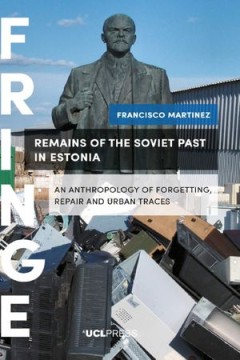
Remains of the Soviet Past in Estonia
What happens to legacies that do not find any continuation? In Estonia, a new generation that does not remember the socialist era and is open to global influences has grown up. As a result, the impact of the Soviet memory in people’s conventional values is losing its effective power, opening new opportunities for repair and revaluation of the past. Francisco Martinez brings together a number …
- Edition
- -
- ISBN/ISSN
- 9781787353534
- Collation
- -
- Series Title
- -
- Call Number
- 940.3 MAR r
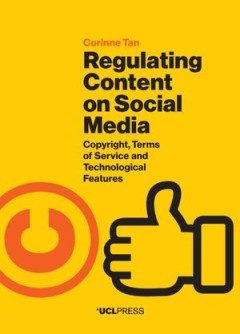
Regulating Content on Social Media
How are users influenced by social media platforms when they generate content, and does this influence affect users’ compliance with copyright laws? These are pressing questions in today’s internet age, and Regulating Content on Social Media answers them by analysing how the behaviours of social media users are regulated from a copyright perspective. Corinne Tan, an internet governance spec…
- Edition
- -
- ISBN/ISSN
- 9781787351714
- Collation
- -
- Series Title
- -
- Call Number
- 658.81 TAN r

Analysis Of Creationism In The United States From Scopes (01/01/1925) To Kitz…
Creationism is based on a fundamental belief in the inerrancy of the bible and negatively affects science education because creationist proponents insist on the inclusion of supernatural explanations for the appearance of species, in particular the origin of humans. This detrimental effect on education is particularly relevant in the United States, where almost 70% of the population rejects the…
- Edition
- -
- ISBN/ISSN
- 9783863953393
- Collation
- -
- Series Title
- -
- Call Number
- -
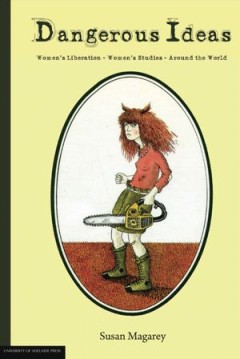
Dangerous Ideas: Women’s Liberation – Women’s Studies – Around the World
Dangerous Ideas explores sex and love, politics and performance, joy and anguish in a collection of essays focussed on the history and politics of the Women’s Liberation Movement and one of its offshoots, Women’s Studies, in Australia and around the world. These are serious matters: they are about tectonic changes in people’s lives and ideas in the late twentieth century, too little remem…
- Edition
- -
- ISBN/ISSN
- 9781922064950
- Collation
- -
- Series Title
- -
- Call Number
- 305.4 MAG d

Ethnic Diversity And The Control Of Natural Resources In Southeast Asia
The authors consider the ways in which the high degree of ethnic diversity within the region is related to the nature of tropical Asian environments, on the one hand, and the nature of Southeast Asian political systems and the ways in which they manipulate natural resources, on the other. Rather than focus on defining the phenomenon of ethnicity, this book examines the different social evolutio…
- Edition
- -
- ISBN/ISSN
- 9780472902309
- Collation
- -
- Series Title
- -
- Call Number
- -
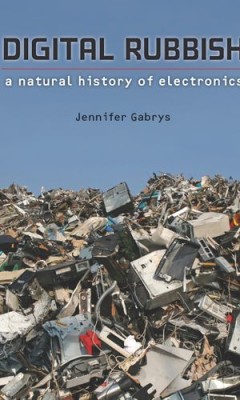
Digital Rubbish
This is a study of the material life of information and its devices; of electronic waste in its physical and electronic incarnations; a cultural and material mapping of the spaces where electronics in the form of both hardware and information accumulate, break down, or are stowed away. Electronic waste occurs not just in the form of discarded computers but also as a scatter of information devic…
- Edition
- -
- ISBN/ISSN
- 9780472900299
- Collation
- -
- Series Title
- -
- Call Number
- -
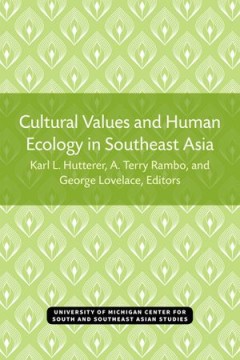
Cultural Values And Human Ecology In Southeast Asia
Digital Humanities remains a contested, umbrella term covering many types of work in numerous disciplines, including literature, history, linguistics, classics, theater, performance studies, film, media studies, computer science, and information science. In Traces of the Old, Uses of the New: The Emergence of Digital Literary Studies, Amy Earhart stakes a claim for discipline-specific history o…
- Edition
- -
- ISBN/ISSN
- 9780472902293
- Collation
- -
- Series Title
- -
- Call Number
- -
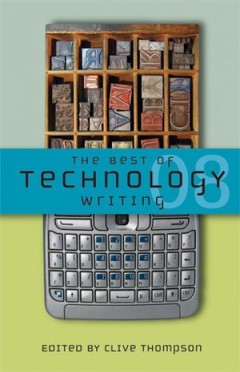
The Best Of Technology Writing 2008
The Best of Technology Writing 2008 proves that technology writing is a bona fide literary genre with some of the most stylish, compelling, and just plain readable work in journalism today. The third volume in this annual series, The Best of Technology Writing 2008 covers a fascinating mix of topics—from a molecular gastronomist's recipe for the perfect gin and tonic; to "the Mechanism," a…
- Edition
- -
- ISBN/ISSN
- 9780472900503
- Collation
- -
- Series Title
- -
- Call Number
- -
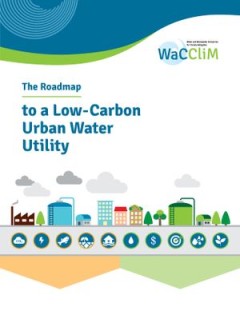
Reading Today
New technologies are changing our reading habits. Laptops, e-readers, tablets and other handheld devices supply new platforms for reading, and we must learn to manage them by scrolling, clicking or tapping. Reading Today places reading in current literary and cultural contexts in order to analyse how these contexts challenge our conceptions of who reads, what reading is, how we read, where we r…
- Edition
- -
- ISBN/ISSN
- 9781787351950
- Collation
- -
- Series Title
- -
- Call Number
- 300
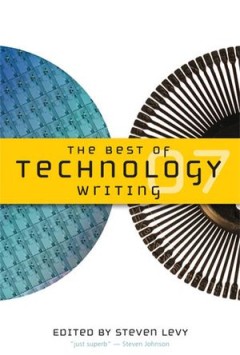
The Best Of Technology Writing 2007
Together the essays in The Best of Technology Writing 2007 capture the versatility and verve of technology writing today. Solicited through an open online nominating process, these pieces explore a wide range of intriguing topics—from "crowdsourcing" to the online habits of urban moms to the digital future of movie production. The Best of Technology Writing 2007 will appeal to anyone who enjo…
- Edition
- -
- ISBN/ISSN
- 9780472900541
- Collation
- -
- Series Title
- -
- Call Number
- -
 Computer Science, Information & General Works
Computer Science, Information & General Works  Philosophy & Psychology
Philosophy & Psychology  Religion
Religion  Social Sciences
Social Sciences  Language
Language  Pure Science
Pure Science  Applied Sciences
Applied Sciences  Art & Recreation
Art & Recreation  Literature
Literature  History & Geography
History & Geography